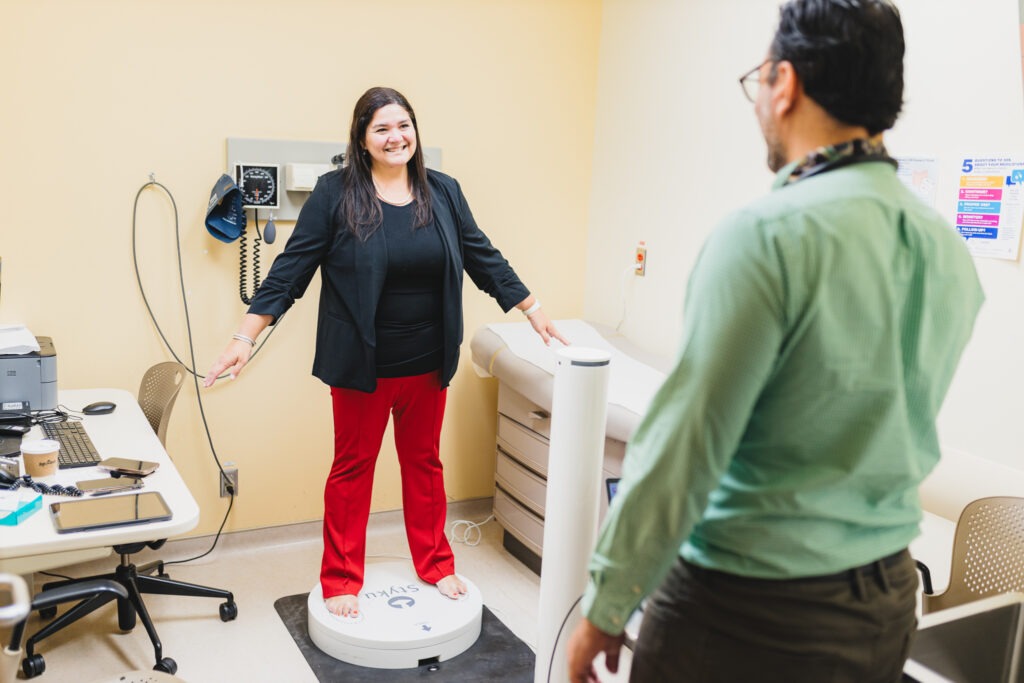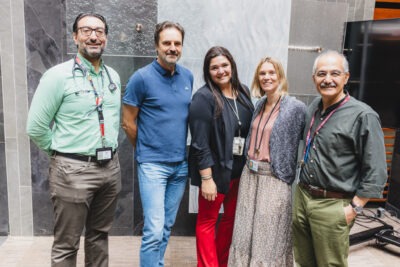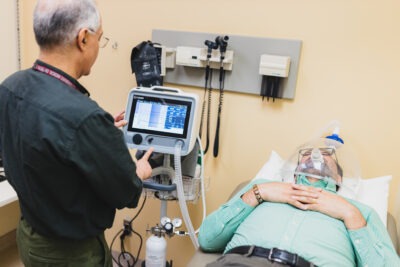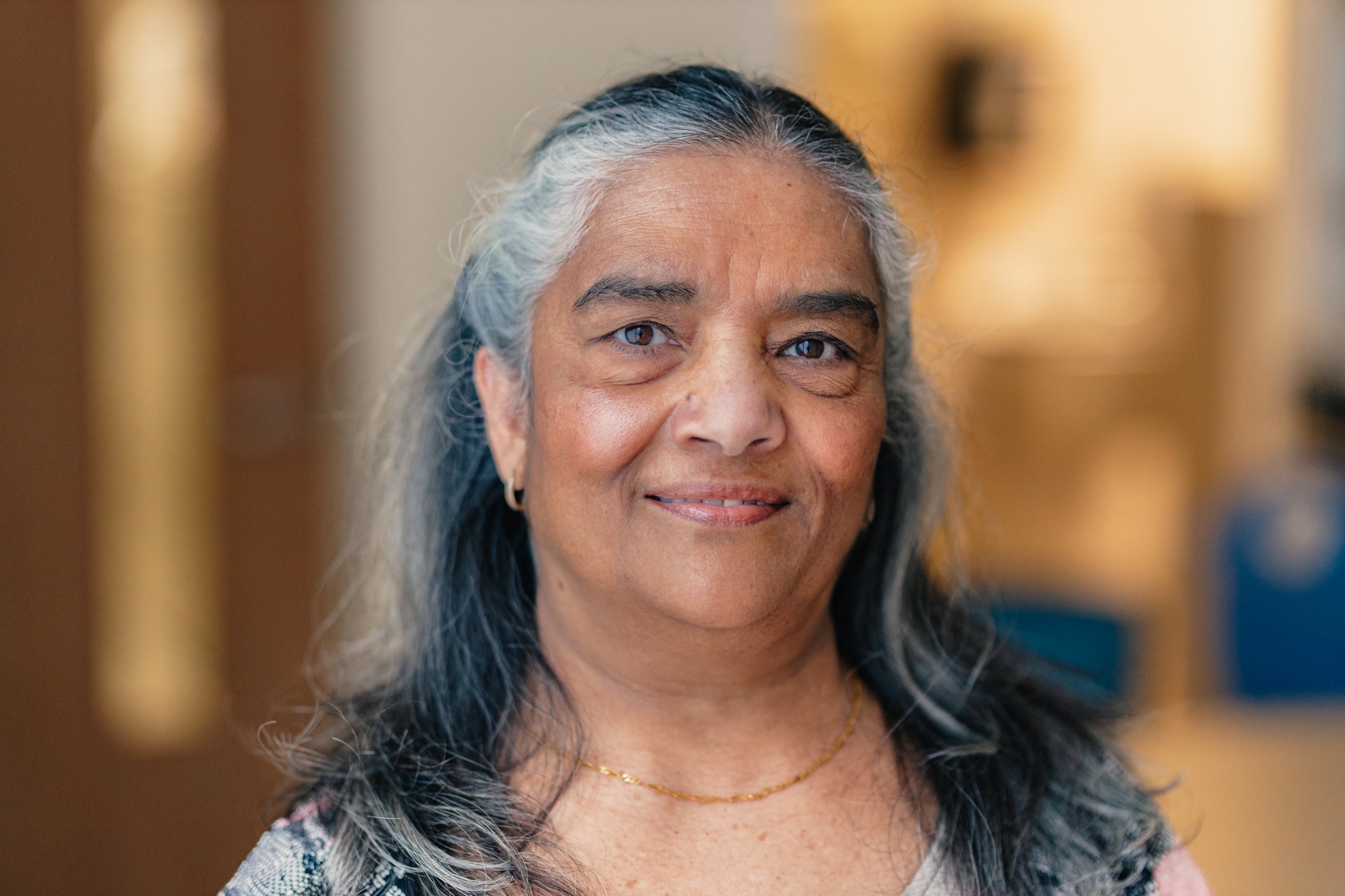
From A to Zinc: Researching the best diet for adults with celiac disease
Dr. Maria Ines Pinto-Sanchez, a gastroenterologist at Hamilton Health Sciences (HHS), came to Hamilton from Argentina in 2010 for a research fellowship under the supervision of Dr. Premysl Bercik, a renowned gastroenterologist and scientist at HHS. Pinto-Sanchez’s clinical and research focus has been on celiac disease since her medical training in Argentina in 2004.

Dr. Maria Ines Pinto-Sanchez
When she came to Canada, Pinto-Sanchez was amazed by the research on celiac disease from McMaster University professor of medicine Elena Verdu but was surprised by the lack of a specialized clinical support for adults with celiac disease. She was determined to make a change to support these patients.
Celiac disease is an immune reaction in the small intestine to the presence of gluten, a protein commonly found in wheat, barley and rye. The reaction causes inflammation, leading to damage to the small intestine which prevents the absorption of nutrients. The result is chronic diarrhea, abdominal pain, fatigue, anemia, weight loss and other complications. While there is no cure, the condition can be managed by removing gluten from the diet. Due to this, people diagnosed with celiac disease will need to follow a strict gluten-free diet the rest of their lives.
Launching an adult celiac disease clinic

The clinic team from left to right: Mark Khaouli, Dr. Premysl Bercik, Dr. Maria Ines Pinto-Sanchez, Jedid-Jah Blom, Dr. Siavosh Nasseri –Moghaddam. Absent: Dr. David Armstrong.
In 2016, while still working as a fellow, Pinto-Sanchez supported Bercik in opening the Celiac Disease Clinic as part of the Digestive Disease Clinic at HHS’ McMaster University Medical Centre. She now leads the clinic, which receives hundreds of referrals from across the province each year. The clinical team of gastroenterologists and dietitians determines the appropriate gluten-free diet for each patient and helps them understand how to follow it. Once symptoms are under control, patients are then monitored yearly to ensure they continue to get the nutrients their bodies need.
Research is built into the structure of the clinic in order to provide the most effective ongoing support to patients. It’s part of the Farncombe Family Digestive Health Research Institute of McMaster University, in which Verdu is the associate director and now a mentor to Pinto-Sanchez. The clinic works closely with the Canadian Celiac Association in supporting the celiac community and is the only adult celiac clinic in Canada to be recognized and certified by the Society for the Studies of Celiac Disease, an international organization committed to advancing proper diagnosis, treatment and research of celiac disease.
Patient data guides research
“We have an ongoing registry of our patients and collect data with each visit,” says Pinto-Sanchez. “We use this data to guide our research into possible solutions to challenges they face.”
Using the registry Pinto-Sanchez and the clinic team found that 60 per cent of patients are overweight, which she says is generally a common concern for those with celiac disease.

Demonstrating the use of the calorimetry machine to measure the calories that the body burns while resting.
There are standard predictive formulas to determine each patient’s daily calorie intake. However, an overestimation of the energy needed can lead to a prescription of more calories than a patient needs. So, the clinic has been studying the use of a Calorimetry machine and 3D body scanner for a personalized nutrition assessment and to determine each patient’s daily calorie needs.
“The Calorimetry can analyze a person’s metabolic process which we expect to be far more accurate in helping determine the appropriate energy expenditure for each patient,” says Pinto-Sanchez. “We’re looking to provide a more tailored individual assessment in hopes of preventing patients from becoming overweight.”
The struggle with nutrient deficiencies
The team, which includes researchers, postgraduate and graduate students, also found that 60 per cent of patients have nutrient deficiencies, most commonly zinc. While the body only needs a small amount of zinc, it supports a healthy immune system, prevents cell damage and aids in the healing process.
“We discovered the zinc deficiency is not only in those with a new celiac diagnosis, when malabsorption of nutrients is typical, but also in those that are already on a strict gluten-free diet,” says Pinto-Sanchez. “This suggests the deficiency is diet related.”
These findings were published last year and the team is now working on a study to determine the cause of the zinc deficiency.
Pinto-Sanchez says that many of the clinic’s patients would rather make changes to their diet rather than take supplements, so the team is also working on a clinical trial to see if a zinc optimized diet can effectively restore zinc levels. Pinto-Sanchez is co-leading this study with Dr. David Armstrong, an HHS gastroenterologist, McMaster University professor of medicine and an internationally recognized researcher on digestive diseases and nutrition. This study is funded by the Hamilton Academic Health Sciences Organization Innovation Grant.
“Our patients have a disease that requires lifelong management. It only makes sense for us to explore new and improved ways to make their lives easier,” she says.




